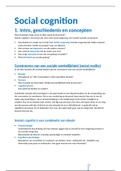1.
In an experiment participants filled in a questionnaire. Subsequently they received false feedback claiming that their score was 40%, with 100% being the highest possible score. Moreover, the participants received additional information or they heard that an average person in their age-category received a score of 30 % out of 50% or the person did not get this information. Who of the participants would not wish to receive about the scores of the others:
A. The persons who did not receive additional information
B. The persons who received the additional information that an average person in their age-category got a score of 30%
C. The persons who received the additional information that an average person in their age-category got a score of 50%
D. All participants will wish to receive information about the scores of others equally
Réponse: B. The persons who received the additional information that an average person in their age-category got a score of 30%
People do not wish to receive extra information if they are in a favorable position. The people with a score of 50% scored 10% higher than average. Therefore, they are less inclined to compare themselves with others.




